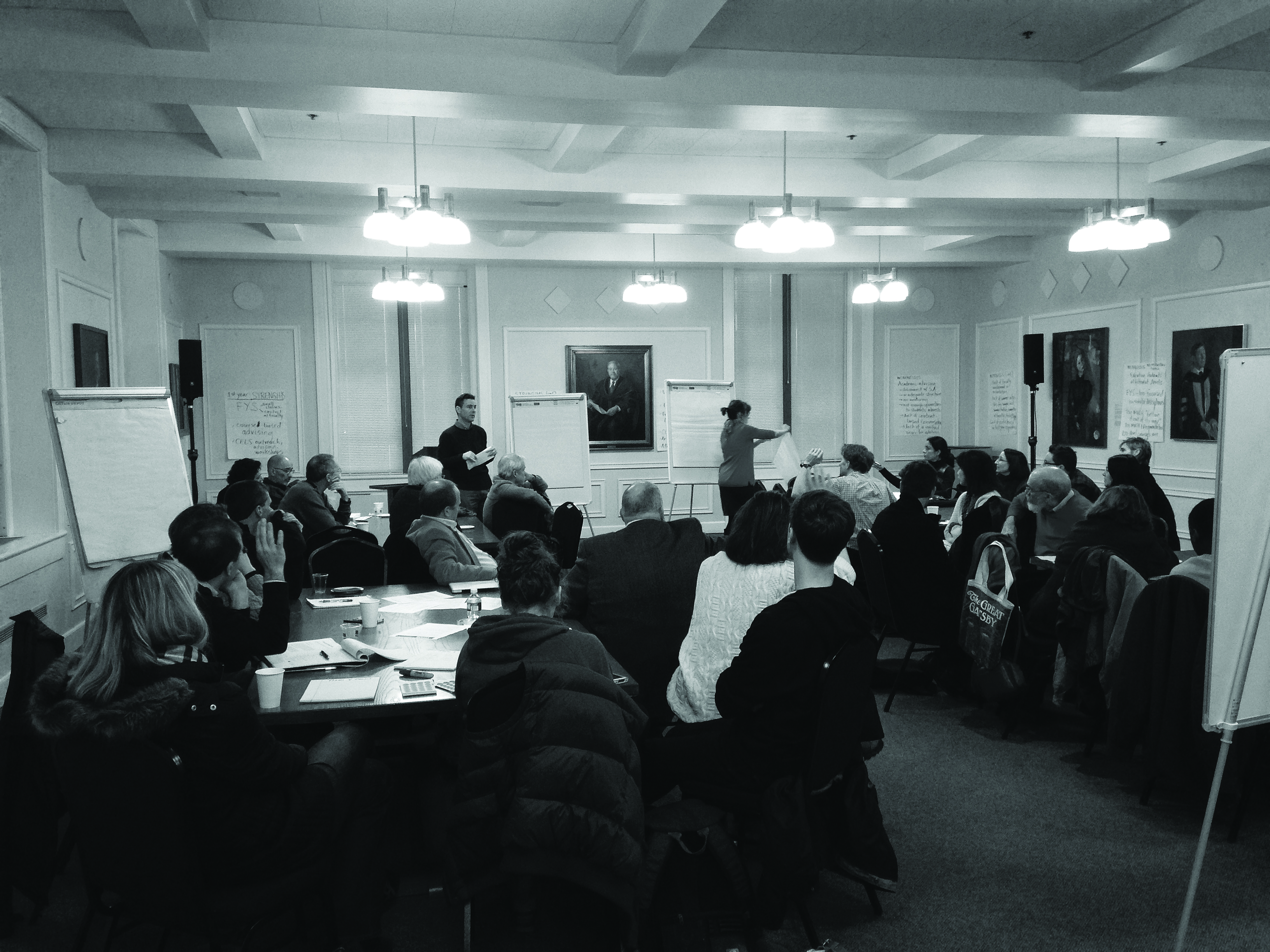ReVision week is the beginning of the biggest undertaking you will ever see at Connecticut College–an undertaking so large that it has already been two years in the making and will probably not reach full fruition for another eight. This glacial pace may sound ineffectually slow, but when considering that the plans laid out during reVision week will eventually lead to a complete upheaval of our campus’s academic and cultural structure, you can imagine why such a monumental revolution will require at least two generations of students to fully implement.
ReVision week is about collecting ideas from students, faculty and staff about enacting change, and not just change to General Education Requirements, but change to almost every aspect of our campus. “This is not simply a General Education program. It’s a program that encompasses the whole liberal course of study, the whole curriculum,” said President Bergeron in her speech introducing reVision to the campus.
Only by attending five of the week’s twelve events was I able to begin to understand what she meant and fully grasp the scope of this proposed change. I conceptualize reVision week as a branching approach to addressing the problems of our campus under two broad categories: inclusive excellence and academic reform. Inclusive excellence is probably the most jargon-y term to come out of the event (and trust me, there was a lot of jargon). Much of reVision week was dedicated to conveying exactly what this phrase means.
As I understand it, inclusive excellence is the principle that diversity, in all its forms, should be embraced, addressed and exposed in order to create an environment of equity both inside and outside of the classroom. To have a campus which displays inclusive excellence would be to have a campus that “actively engages inclusion in all of its beauty and all of its complexity,” explained Dean of Multicultural Affairs, Elizabeth Garcia.
The academic reform aspect of reVision week, that took the forefront in the advertising of the event (particularly GenEd reform), was about rethinking how Conn structures its academics in terms of advising, graduation requirements and interdisciplinary education. The reVision effort is trying to combine these two themes of inclusive excellence with academic reform, but for the purposes of structuring the conversations that happened throughout the week, they were generally discussed separately.
Within these two categories, I was both impressed and overwhelmed with the breadth of topics being discussed. At one point, I was in a room where the walls were literally papered with all these ideas, as faculty members wrote out suggestions during a “town hall” style meeting on large pieces of paper and taped them up all over the room. Issues of discussion over the course of the week included creating more accessibility on campus for disabled students, making GenEd requirements optional for double majors, holding more discussions on the concept of whiteness and integrating Conn students more with the surrounding communities by establishing better transportation off campus.
It was almost impossible to consider the Administration seriously digesting all of these ideas, let alone enacting them into concrete changes, but that is exactly what they plan to do.
“Believe me, we do not just want a lot of talk that dissipates into the air,” said Professor Amy Dooling of the East Asian Studies Department, who is the current head of the Educational Planning Committee. “We are going to take all the information and circulate it back to the campus. Then we have concrete steps. A call for proposals is going to go out to the faculty about pilots for the fall, and we’re going to figure out which are the things that we want to start testing out at this moment. We are going to be appointing a task force, and we are going to be in a position to vote on an actual framework next semester. We want to seize this moment, and get the faculty to a point where we can accept a whole vision, instead of just accepting small increments of change.”
This seemed to be the general tone from most every faculty member involved, and it’s this assured tone that got me especially excited about reVision week. This is going to be a lot of work, but it is going to happen. “There is a lot of support for this in the faculty, which will give [reVision] the momentum to continue,” explained Dean Ammirati, Dean of Studies. “Nobody’ is going to say in May ‘Oh well, we had a nice year, let’s move on to something else now’. We’re all committed”. And while these changes take many years to take effect, the school already has a plan, as well as funding, to begin pilot programs as soon as next semester.
I was entirely prepared to write off reVision week as a series of empty discussions, culminating in nothing more than a list of goals to be admired, but never to be acted upon. The reality is that far more time, money and energy has gone (and will continue to go) into this effort than we will ever know. The change, as mentioned, will be far from immediate, but it will happen.
If this change really will take so long to enact, why should you care? More importantly, why should I, a second semester senior, care? “You will benefit,” said Professor Flores of the Sociology Department, “and I’ll tell you why. When our school gets better, and becomes more respected [due to the reVision changes], that reflects on you as an alum. You will still have graduated from this school, and you’ll have been part of the change.”
It’s easy to be cynical about an effort as large and unwieldy as reVision week. But if you pay attention, then you’ll see that this is the beginning of perhaps one of the biggest movements of change ever to occur at Connecticut College. •










